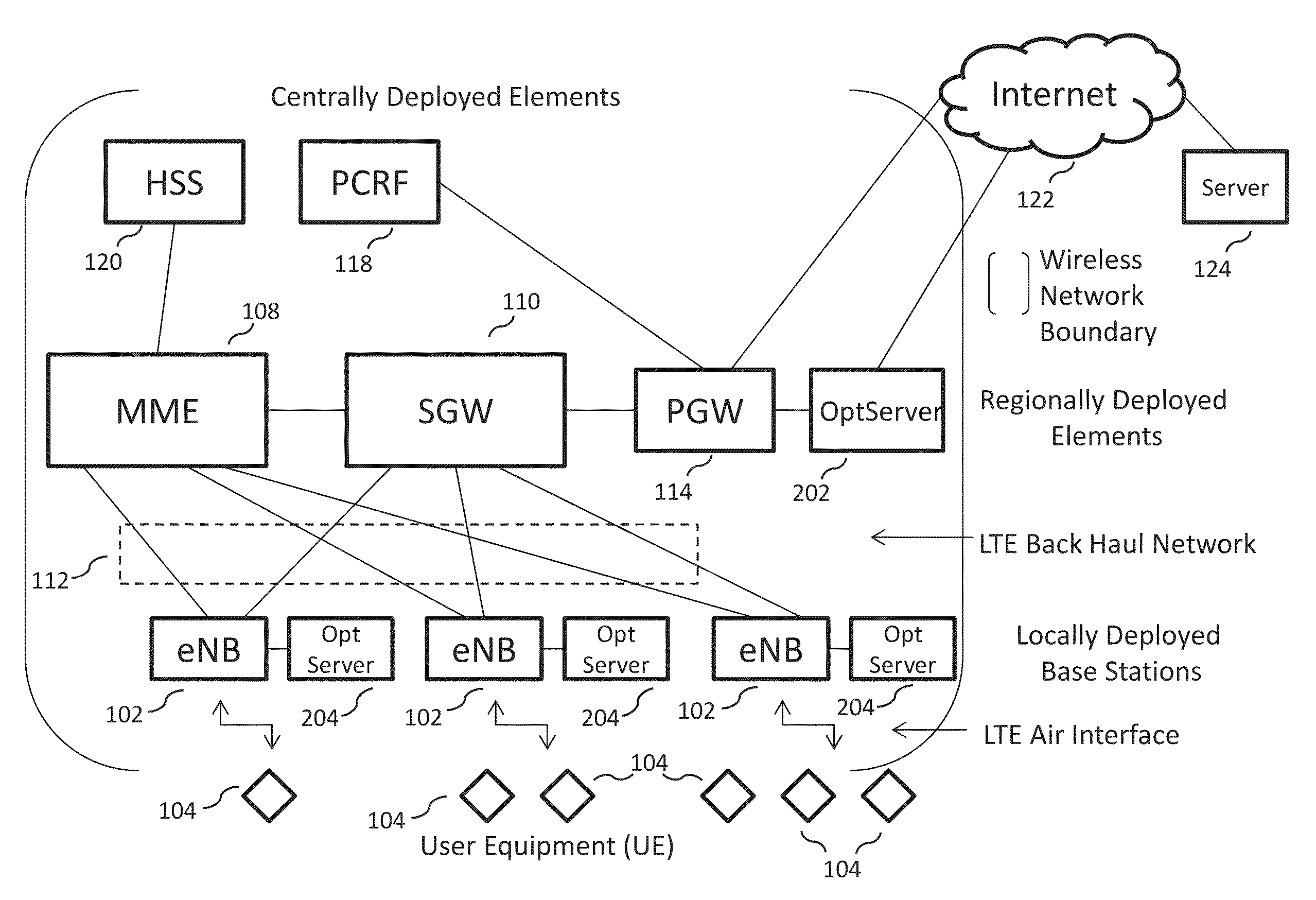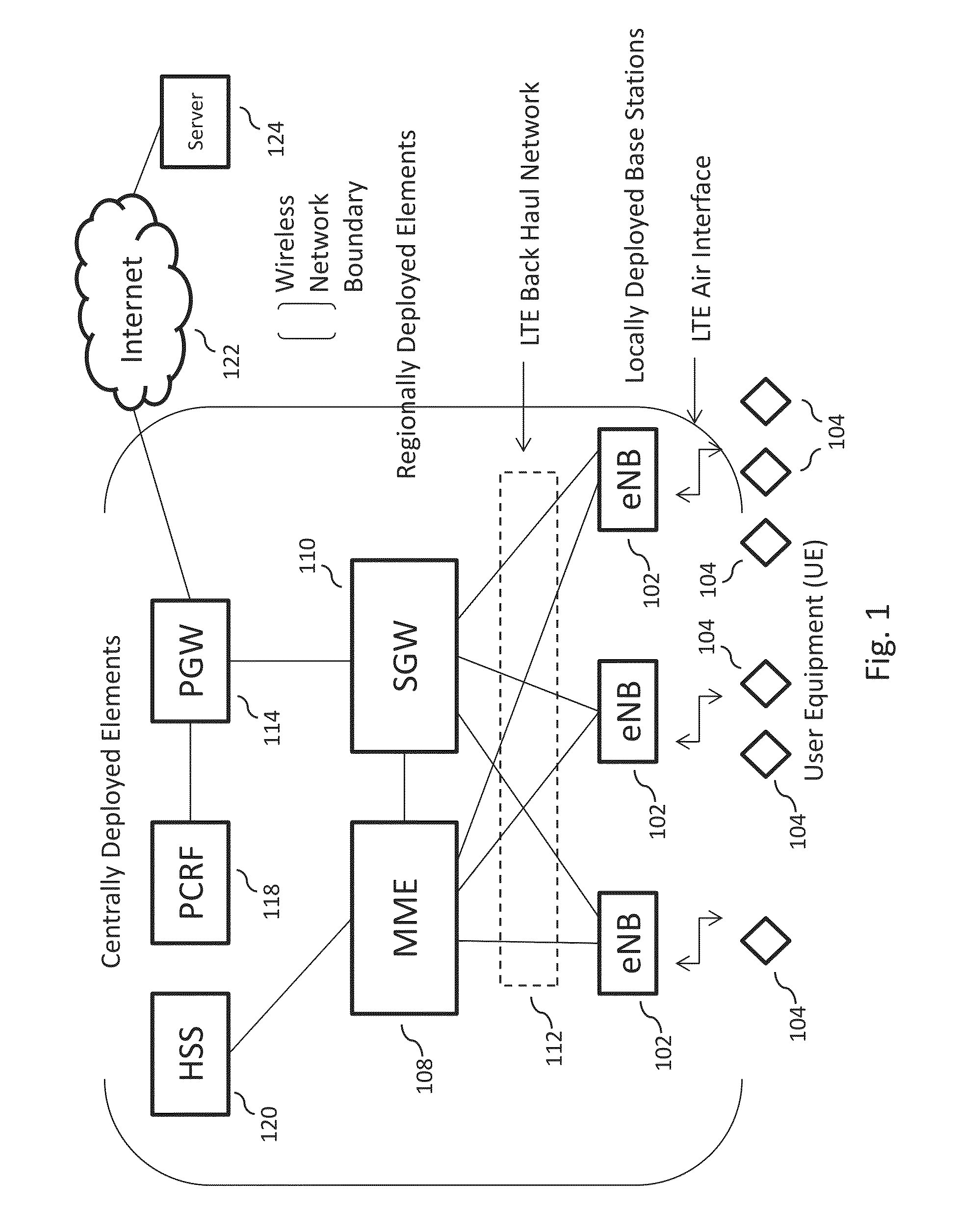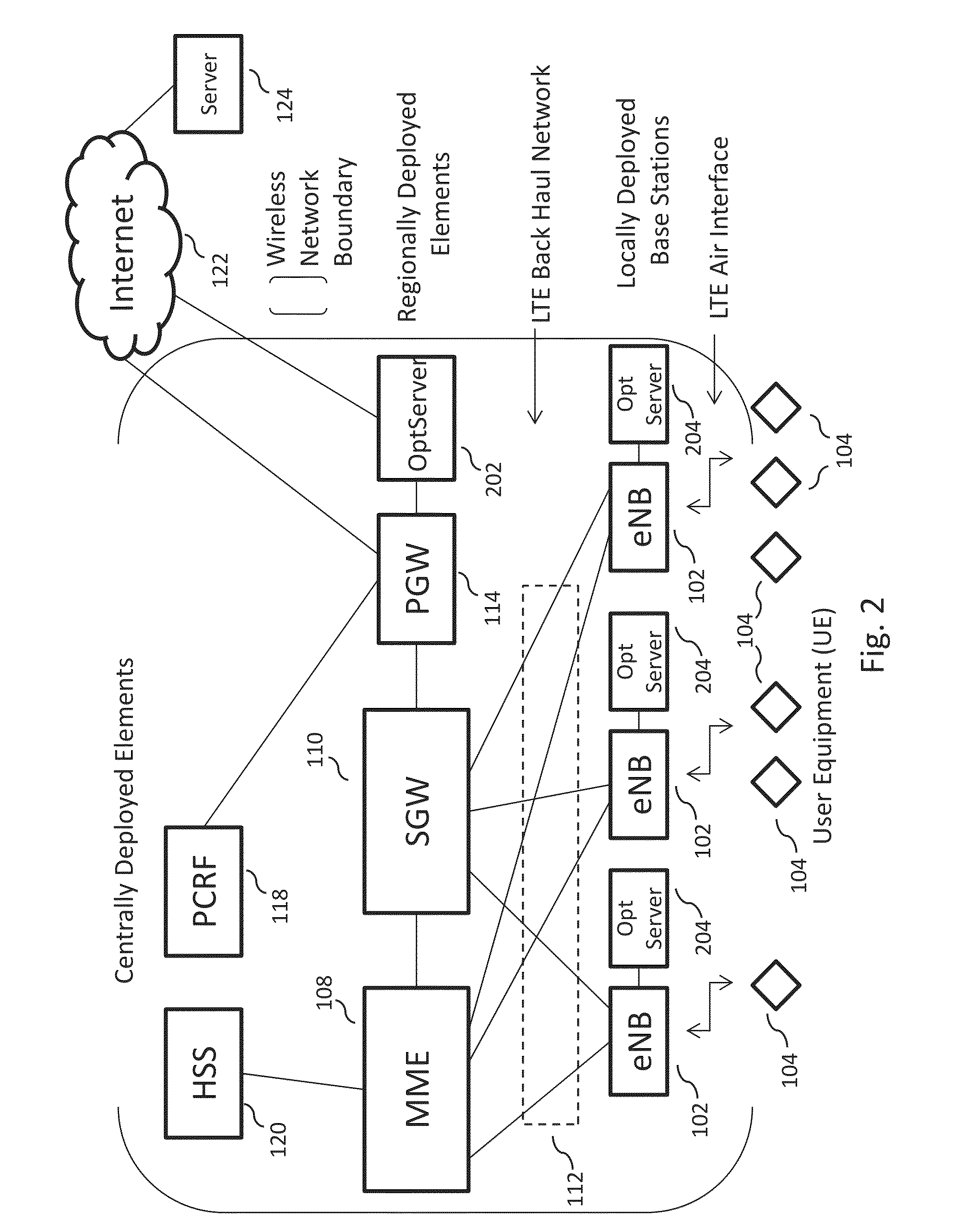[0009]The system described herein utilizes aspects of the APN LTE wireless network to create a sensor platform that has the ability to collect and store data from a large number of sensor devices, to process that data, and to redistribute the results to a multiplicity of end points or communicating entities, including user communication entities (e.g., a computer-based user communication device, a mobile transceiver device, a server-based application, and other user equipment (UE)) and other sensor-based communication devices, that may need the data. These aspects may include the higher data capacity available using a network beam forming technique; the ability to collect data from a large number of sensors and to distribute the sensor data, or data derived from sensor data, to a large number of users and other sensors; the ability to co-locate optimization servers with base station elements, close to the wireless access points of a large set of sensors; the ability to redirect a UE bearer, so it connects the UE directly to an optimization server co-located with the base station element that serves the UE, thereby minimizing latency and use of the LTE back haul network; the ability to use the publish / subscribe communications facilities deployed in the LTE wireless network via this invention to route and distribute the sensor data among a large set of end points in an efficient manner; the ability to use the optimization servers as storage and analysis processing points for the sensor data, and the like. A large set of sensor-based applications may be built using these capabilities.
[0010]In embodiments, the acquisition, processing, storage, and distribution of sensor data by processing entities (e.g., optimization servers) deployed and integrated into the LTE wireless network, and located close to the sensors and to the users, may conserve back haul resources and provide low delay to users who need to access the sensor data, or to the processed sensor data.
[0017]In embodiments, the publish-subscribe broker communications facility may allow a single stream of sensor data to be delivered to a plurality of communication devices that subscribes to the sensor data stream. The connection of sensor devices may be made to publish-subscribe broker communications facilities rather than being connected directly to the application facilitates the addition or deletion of sensor devices in communicative connectivity with the application. The communicating entities may be able to use a single connection to the publish-subscribe broker communications facility to communicate a plurality of data streams with one or more applications and other sensor devices. The use of the conferencing service may enable the collection and distribution of sensor data to be organized among the plurality of communicating entities that provide and receive data related to the functions performed by the sensor devices. The conference service may enable the organization of a set of diverse sensor types, a diverse set of data consuming entities, and data processing, storage, and transfer entities into a distributed sensor application, including the deployment of service programs specific to each sensor type, and including using the conference service to organize sets of processed sensor data into data streams, each of which is shared concurrently with a subset of participants in the application that need access to the particular data stream. Real-time situational awareness of the sensor data may be provided to human users, to other sensor devices, to applications, and the like.
[0020]In embodiments, the application may run either on the regional optimization server or on a server remote from the boundary of the cellular LTE wireless network, and wherein the application publishes its application data streams via the second publish-subscribe broker communications facility that runs on the regional optimization server, or on a third publish-subscribe broker communications facility that runs on a server remote from the boundary of the cellular LTE wireless network, and wherein the at least one of the second or third publish-subscribe brokers routes the published packet streams to the first publish-subscribe broker communications facility that runs on the base station optimization server that serves the at least one sensor device and the at least one communicating entity that subscribe to the published packet data streams. The application data published by the application may be routed by the publish-subscribe broker communications facility to which it is connected to all communicating entities that subscribe to its application data, regardless of where the communicating entities are attached in the broker network, wherein the communicating entities are selected from the group consisting of a computer-based user communication device, a mobile transceiver device, a sensor-based communication device, other applications, and display devices. The ability to use redirected LTE bearers to connect the sensor device to the publish-subscribe broker communications facilities that run on the base station optimization servers may reduce latency in delivering sensor data to a storage and data processing application. The use of the back haul network transmission facility may be minimized in collecting, processing, and distributing sensor data. The delivery of at least one of sensor data and processed sensor data to communications entities connected through the same cellular LTE base transceiver station as the sensor device, may be performed with low latency and without using the LTE back haul network, wherein the communicating entities are selected from the group consisting of a computer-based user communication device, a mobile transceiver device, a sensor-based communication device, other applications, and display devices. The publish-subscribe broker communications facility that runs on the base station optimization server may allow a single stream of sensor data to be delivered to a plurality of communicating entities that subscribe to the sensor data stream.
 Login to View More
Login to View More  Login to View More
Login to View More 


